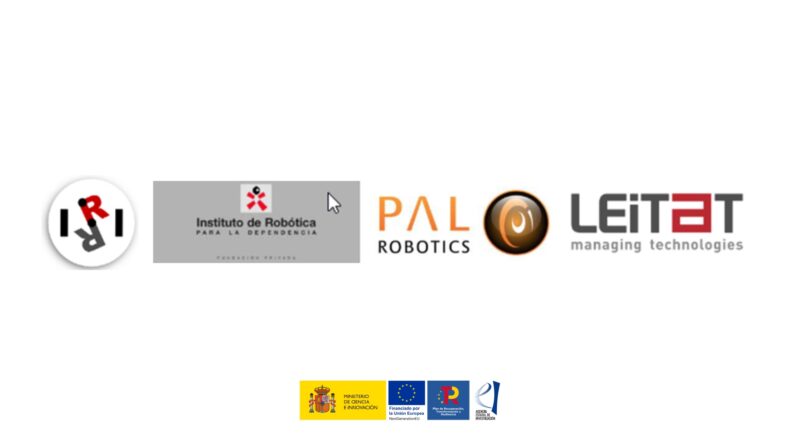RAADiCal
RAADiCal
The objective of the project is to help elderly or disabled people to maintain a healthy mental and physical life using intelligent robotics systems. This includes keeping and improving social relationships, have healthy meals and execute daily routines of physical and mental exercises. To achieve this, we propose an intelligent robotic system capable of helping people to communicate, monitor the person and motivate them mentally and physically. A human remote operator can help in case of unhandled events or risk situations in real time.
In line with the call objectives, the robotic system’s main target is the use of it at home by people living alone, but the project will additionally validate its use in care centers.
19.1% of the population in the EU + Switzerland was older than 65 years in 2016. Life expectancy was around 20 years more, half of them with health issues. Around 31% of them lived alone (source Eurostat). Elderly care necessity is clear.
RAADICAL will enhance the capacity of caretakers to help and support more people. Project challenges include all required robot cognitive capabilities to understand user behavior and be able to communicate naturally and working in an unstructured home environment. Due to robot limitations, project plan adds remote support, so a fleet of intelligent robots and a single caretaker can help and support many persons.
The project is aligned with call objectives, we use robotic technology to be deployed at user’s home to assist and help elderly persons living alone: keep people in touch with family and friends, monitor behavior, track activities, and make recommendations, and keep people active physically and mentally.
The project will execute the following activities to accomplish its objective:
- Determine the main needs and requirements for elderly and disabled persons. Select a robot as base (PAL TIAGO or ARI platforms) and the additional equipment.
- Investigate and implement basic functions like a robust human-aware home navigation system, task planner and bidirectional natural communication channels (speech, gestures…).
- Investigate and implement advanced cognition modules for user tracking, recognition of user speech and gesture in his activities.
- Implement a remote operator support system and investigate remote control in case of unhandled or risk situations.
- Investigate and support ADL including scheduled activities reminders, communication to family and friends, automatic analysis, and understanding / monitoring user activities.
- Investigate and support to health and well-being by monitoring and measuring health and quality of life indicators, making recommendations, and proposing physical exercises and cognition games to improve user health.
- Test all functionality in real environments.
The project is in line with the expected impacts of this call: Improved well-being of users, improved user health, mitigate the problems of an aging population and contribute to the development of companies that operate in this sector.
PAL robotics will provide the robot base and make the necessary adaptations. LEITAT (robotics dept.) is the project coordinator and focus on remote support and some robot cognitive aspects. IRII will investigate robust human-aware navigation and behavior detection, among other robot capabilities.
Finally, IRD is responsible for ADL, health and quality of life monitoring and support. IRD will provide real homes to validate the system.
At the end of the project, in short, we will have a real robotic functional prototype with all mentioned capabilities and a final report with tests/ validations in real environments.
Project Budget: 796.168,43€
Leitat Budget: Pendiente €
Financial Framework: Proyectos I+D+i en líneas estratégicas, en colaboración público-privada 2021
Contract number: PLEC2021-007817
Start Date: 01/09/2021
End Date 30/11/2024
Partners:
- LEITAT (coordinator)
- PAL ROBOTICS
- Agencia Estatal Consejo Superior de Investigaciones Científicas
- Fundación Instituto de Robótica para la Dependencia
Contact Manager: Sonia Puerto

Project PLEC2021-007802 funded by MCIN/AEI /10.13039/501100011033 and by European Union NextGenerationEU/PRTR.

